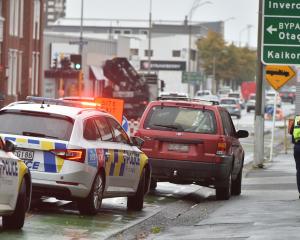
The proposal has angered former head of Dunedin Hospital’s emergency department Dr John Chambers, who said it could lead to pressure on the wider hospital network and surgery delays.
Documents released under the Official Information Act show that on January 23 this year, Health New Zealand Te Whatu Ora (HNZ) infrastructure lead Blake Lepper told then Health Minister Dr Shane Reti it planned to reduce the number of ICU beds on opening from 30 to 20.

Mr Lepper confirmed to the Otago Daily Times yesterday HNZ was going ahead with the reduction in ICU beds on opening.
Dr Chambers said reducing the number of ICU beds would have significant impacts on the rest of the hospital.
"The reason for building a new hospital was the inadequacy of the current buildings.
"The aim is to have sufficient capacity to serve the needs of our population for the next 50 years and avoid the problems of our current system, such as elective basic surgery being cancelled due a lack of ward beds or complex surgery due to a lack of ICU beds."
Mr Lepper’s briefing also conceded that officials’ new proposal would have fewer inpatient beds than initially proposed, but said the capacity "meets forecast demand requirements on opening".
"It provides more beds than are presently resourced, but less than the current hospital physical capacity.
"The approach is aligned with the Australian state of Victoria and validation has also been made against the Queensland state approach."
The existing Dunedin Hospital has a 388-bed tertiary facility capacity.
Mr Brown announced the new hospital will open with 351 inpatient beds — 59 fewer than originally proposed, but with capacity to expand to 404 beds over time.
Dr Chambers said health officials seemed to have been tasked with "retrospectively downsizing the plans across the board in response to projected increasing costs".
"The aim should be a staffed facility including an ICU where the cancellation of elective surgery including neurosurgery and cardiac surgery is a very rare event."
Mr Lepper said yesterday the number and makeup of bed spaces at the new Dunedin hospital had been guided by more up-to-date bed modelling analysis for the southern region.
"This has resulted in some adjustments in capacity for different areas to align with the most recent assessment of expected demand."
The new Dunedin hospital will have 20 ICU beds on opening, with capacity to increase to 40 ICU beds over time, he said.
The original plan was for 30 ICU beds on opening, and capacity for a further 10 beds.
"The bed spaces earmarked for future fitout have been informed by the modelling and current thinking about models of care."
Dr Chambers said the officials’ correspondence made for grim reading.
"The main message I took from the limited information was just how tight the
new facility is going to be in terms of its size and bed numbers.
"There are fewer inpatient beds than the current hospital, and it’s very dependent on new models of care to reduce the need for hospital care and deliver care using an ambulatory /same day model.
Last year, the ODT revealed HNZ officials considered removing the sixth floor, which would have housed the psychogeriatric and dementia wing, from the new Dunedin hospital — but in January this year, HNZ officials proposed the sixth floor be "shelled" for future development.
Dr Chambers was pleased the sixth floor remained, but said any sort of expansion "could take many years".
"There certainly will be the capacity to do a lot more surgery and procedures if all the additional theatres are staffed and functioning.
"So, when the new hospital finally opens in five-plus years, it will be a nervous time to see how it copes with increasing the service delivery which our population needs and deserves."











